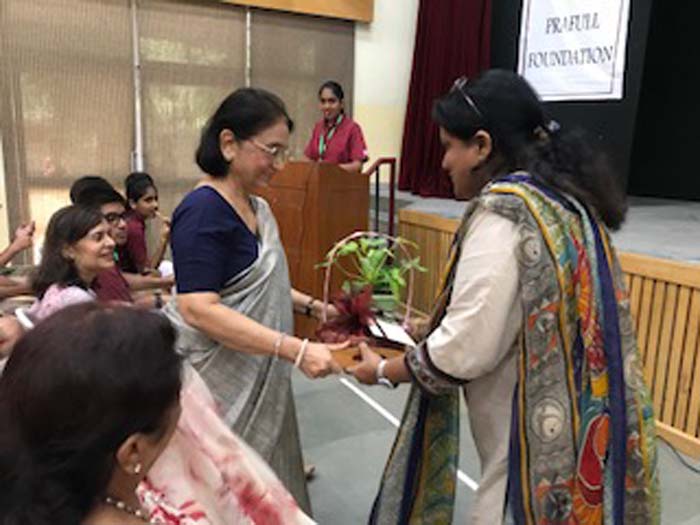Science Week lectures
Climate Change - Mrs. Jyoti Parikh
As the world progresses in areas of Globalization, Industrialization and Urbanization, a rapid development is observed. Alas, a lot of this development is at the cost of our precious environment. Factories belching smoke, multiplying vehicles moving on roads and forests being replaced by edifices are a proof of this.
The Indian School, during Science Week held a talk by Mrs. Jyoti Parekh, renowned environmentalist, on the issue of climate change. The topic is one of the most important consequences of a deteriorating environment. Mrs. Parikh, who currently works at IRAD has appealed to the Prime Minister about her concerns over the issue of climate change in India. She has also represented India at many international conventions.
[gallery link="file" order="DESC"]
Mrs. Parikh started the talk by stating some less known facts. 2015 was the warmest year and the average temperature increased upto 15 degrees celsius. This was the result of an increased confluence of the green house gases which prevent a major portion of the sun's heat from escaping back into space. These GHGs have led to acidification of the oceans by due the creation of carbonic acids. Through some comparative pictures, the speaker explained how glaciers have started to melt away, how the ocean levels have risen and how the snow cover on the mountains has become thin.
She further explained the detrimental impact of this climate change on the economy and the lifestyle of people by citing examples of the Latur and Karnataka droughts, the north Indian dust storms, floods in Mumbai, Kashmir, Chennai and the recent Kerala floods. This climate change has made the cities increasingly vulnerable to natural calamities.
Along with the present and future repercussions, Mrs. Parikh named some measures to prevent such drastic calamities. Small steps by the people at large, can contribute in reversing the effects of climate change. Planting trees, using paper and electricity judiciously, substituting electric bulbs with LED lamps, using bicycles instead of cars, are some easy measure we can easily adopt.
Global and domestic examples of steps being taken to reduce the carbon footprint and conserving resources are heartening. But a vast effort is required to halt the progression of climate change. Indira Paryawaran Bhavan is the 1st ZEB building in India. India also has the NAPCC and the SAPCC for formulating policies over climate change at the national and state levels. The NAPCC has in fact set 8 missions which it seeks to accomplish. She also informed the students about the Stockholm Convention, Rio Conference and the Paris Climate Change Conventions as amongst some of the most significant steps taken as effective action on the issue of climate change.
The students had an extremely enriching opportunity to interact with an expert.
Aryan Singh (X-D).













